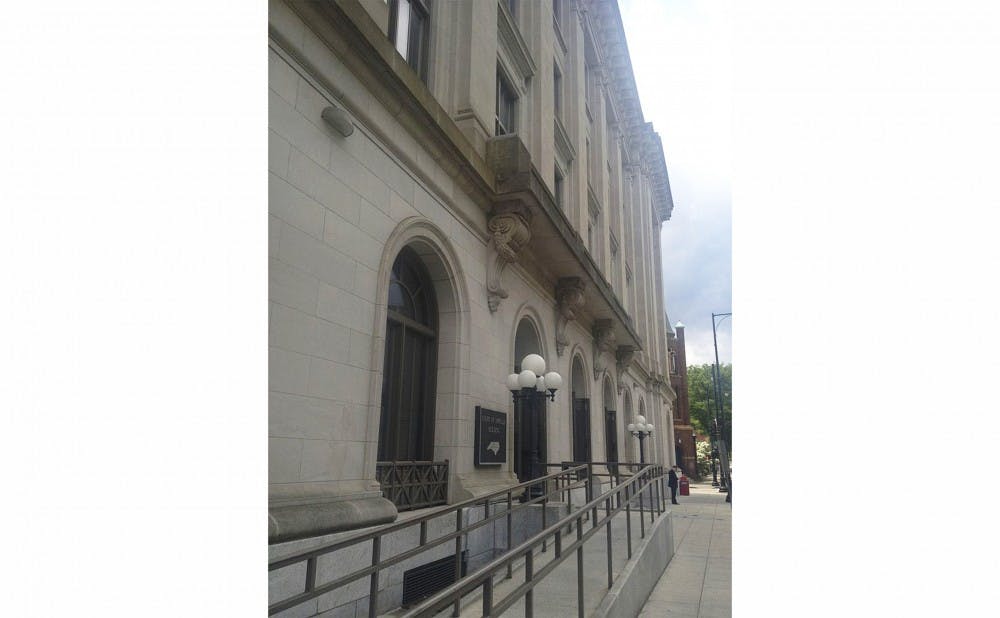In an unusually tight race, 19 candidates are currently vying for the one seat available on North Carolina's Court of Appeals.
Analysts fear that voters in the November election will have less information to distinguish between the numerous candidates, and may be less likely to come out to the polls because of it. The abnormally crowded ballot is the result of Justice John Martin's unexpected early retirement in August—which was announced too late in the election process for candidates to be narrowed to two in a primary election.
“I think a lot of people looked at the race and felt like it might be wide open,” said Keischa Lovelace, a current candidate in the race and a Deputy Commissioner of the North Carolina Industrial Commission. “There wasn’t one individual who was the frontrunner.”
Of the 19 candidates, many have relatively little judicial experience. The court of appeals typically is not a high-profile race, but the high number of candidates has led to concerns that voters will be even less likely to make an informed decision—or to vote at all.
J. Brad Donovan, another candidate for the seat and also a Deputy Commissioner at the North Carolina Industrial Commission, is skeptical that all of the candidates who registered are truly dedicated to winning the seat. He feels a number of candidates have done little in terms of promoting their campaigns or gaining support.
“They haven’t come to any events, they have no signs and they have no campaign,” Donovan said. “They just filed and are taking a chance.”
Complicating the election beyond the length of the ballot is the fact that the judicial codes of ethics limit what candidates can discuss—making it even harder for them to stand out.
“You really can’t say much on the campaign trail other than who you are, what you currently do and your qualifications and experience, but you can’t speak out on any issues,” Lovelace said.
Even if the candidates are able to distinguish themselves based on the talking points available, lack of voter interest is still a concern.
“Judicial races, especially court of appeals races, are not especially high on people’s list of priorities,” said John Arrowood, a current candidate and former judge on the appeals court.
Fear that voters might skip the judicial ballot, however, is not new. Burley Mitchell, former Chief Justice of the North Carolina Supreme Court, who is not running for the seat, said that low voter turnout in judicial races has traditionally been a problem.
“I went to the polling booth in the 60s, and the floor was ankle deep in judicial ballots,” Mitchell said. “People would go in and vote on the other ballots, and they didn’t know anything about the judicial elections, so they didn’t even pretend to vote. Ask the Board of Elections. That’s still the case now.”
Mitchell is similarly skeptical of voters who do pick a candidate in this election.
“If they do vote, there will be nowhere near 5 percent of the voters who know one of the 19 candidates or anything about them,” said Mitchell. “If they do vote they’ll be voting for a name that looks pretty or something, or who knows what.”
Some of these alternative-voting strategies include picking at random or picking from the first names listed on the ballot, said Shelby Benton, president-elect of the North Carolina Bar Association.
“It's unfortunate, it really is,” said Benton, “There are some really qualified candidates out there.”
Not everyone, however, shares this outlook on voter turnout. Candidate Hunter Murphy, an attorney, is confident that voters will do their research and reach an educated decision.
“I trust that the voters who are going to vote will pay attention to what they’re doing,” said Murphy. “There’s a lot of interest in our race, and it hasn’t just gone by the wayside.”
This year is the first since 2002 that candidates running for the Court of Appeals have not received funding for their campaigns from the government. The Judicial Campaign Reform Act, which allowed candidates running for the Court of Appeals to receive grants from the government for their campaign, was repealed in 2013.
Political parties and special interest groups have filled the void created by the absence of government funding—making the race an unusually political one.
Although the political parties of the candidates will not be listed on the ballot, there are eight registered democrats, eight registered republicans and three independents running in the race. The Democratic and Republican parties have each endorsed a candidate—Arrowood and Judge John Tyson, respectively.
Some observers feel these endorsements could unfairly influence an election that is meant to be apolitical.
“If it was my country, I would consider making it a requirement that judges could not belong to a political party,” said Donovan, an independent. “That’s obviously never going to happen, but in the purest sense of being a judge, impartiality is mandatory.”
Information about candidates is available though flyers, social media, their work histories and public court records.
“If the voter wants that information and wants to be informed, its out there for them,” Lovelace said.
Get The Chronicle straight to your inbox
Signup for our weekly newsletter. Cancel at any time.

